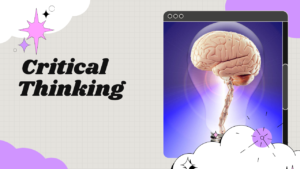Job Hunting: Skills to Increase Your Chances of Success in Finding Your Dream Job
Job hunting is often an intricate and demanding process that extends beyond simply sending out applications. It entails a blend of strategy, persistence, and self-awareness, especially given the ever-evolving demands of the job market. With increasing competition and constant changes in hiring practices across industries, equipping oneself with the right skills has become more important than ever. Fortunately, there are practical strategies and essential skills that, when honed effectively, can significantly increase one’s chances of landing the ideal role.
1.0 Networking
Networking remains one of the most effective tools in job hunting. According to Hansen et al. (2021), up to 70% of job opportunities are filled through networking rather than traditional advertisements. Building a professional network by attending industry conferences, joining online communities such as LinkedIn, and connecting with alumni and former colleagues can lead to valuable insights and job referrals. Engaging with professionals in your field helps you stay informed about industry trends and can expose you to hidden job markets, where roles are filled through word-of-mouth or direct recommendations.
2.0 Research
Comprehensive research into potential employers is crucial. This involves delving into the company’s mission, values, work culture, and recent projects or achievements. Demonstrating familiarity with a company’s ethos in your application shows that you are not only interested in the role but also invested in the organisation’s success. As Cottrell (2019) notes, this level of research can help tailor applications more effectively and demonstrate alignment with organisational goals, which employers highly value.
3.0 CV Writing
Your CV is often the first impression you make on an employer, and it should be tailored to match the job you’re applying for. A well-crafted CV should highlight relevant skills, qualifications, and accomplishments clearly and concisely. According to Jackson and Wilton (2017), employers often spend less than 30 seconds initially reviewing each CV, making clarity and relevance essential. Tailoring your CV to highlight how your experience aligns with the job description increases your chances of being shortlisted.
4.0 Cover Letter Writing
A cover letter complements the CV by providing a narrative about who you are and why you’re a strong fit for the role. It should express enthusiasm for the position and organisation and explain how your background meets the job’s requirements. Hargie (2023) underscores the importance of clear written communication in cover letters, as it reveals a candidate’s ability to articulate thoughts and showcase professional tone.
5.0 Interview Preparation
Thorough preparation for interviews is essential to perform confidently. This includes practising common interview questions, refining your responses, and conducting mock interviews with friends or mentors. Additionally, researching the company’s structure, values, and recent developments allows you to answer questions thoughtfully and pose insightful questions to the interviewer, which demonstrates preparation and genuine interest (Huang, 2010). Non-verbal communication also plays a critical role in interviews—maintaining eye contact, confident posture, and active listening all contribute to making a good impression.
6.0 Communication Skills
Effective communication—both verbal and written—is foundational to the job search process. From composing emails to networking conversations and interviews, clear and confident communication is indispensable. As Hargie (2023) states, strong communicators can articulate their thoughts, demonstrate active listening, and adapt their style based on the audience. Moreover, demonstrating emotional intelligence through communication can enhance rapport with potential employers.
7.0 Adaptability
Adaptability is increasingly recognised as a key employability trait. The job market is dynamic, and candidates must be able to pivot in response to changing circumstances. Savickas (2021) emphasises the importance of career adaptability, which includes being open to change, learning from setbacks, and embracing new opportunities. For example, the shift toward remote work during the COVID-19 pandemic tested and highlighted the value of this skill.
8.0 Time Management
Job hunting is time-intensive and can feel overwhelming without a structured approach. Implementing effective time management techniques—such as setting daily or weekly job application goals and using digital calendars or task management tools—can help maintain momentum. Cottrell (2019) recommends breaking larger tasks into manageable chunks and using prioritisation methods such as the Eisenhower Matrix to avoid burnout and improve productivity.
9.0 Persistence
Rejection is an inevitable part of job hunting, but it should not be a deterrent. Maintaining resilience and continuing to apply, despite setbacks, is vital. According to Habley et al. (2012), persistence is often the distinguishing factor between those who succeed and those who give up prematurely. Keeping a journal of applications, feedback received, and lessons learned can help you improve and stay motivated throughout the process.
10.0 Learning Agility
The ability to learn and adapt quickly—often referred to as learning agility—is a trait highly valued by employers. As Hoff and Burke (2016) explain, learning agility involves being curious, open to feedback, and willing to stretch outside one’s comfort zone. This could mean upskilling through online courses, learning new software relevant to your industry, or engaging in volunteer work to broaden your skillset. Demonstrating learning agility shows that you are committed to personal development and capable of evolving with industry needs.
11.0 Digital Literacy
In an increasingly digital job market, digital literacy is becoming a fundamental requirement. Applicants must be proficient with online application systems, video conferencing tools for remote interviews, and professional platforms like LinkedIn. Moreover, understanding how to optimise online profiles with appropriate keywords and achievements can enhance visibility to recruiters using applicant tracking systems (ATS) (Brown, 2020).
12.0 Personal Branding
Your personal brand—how you present yourself professionally online and offline—can influence how employers perceive you. A strong LinkedIn profile, consistent professional tone across platforms, and even contributions to discussions in professional forums or blogs can enhance your credibility. As Peters (1997) originally proposed, the concept of “Brand You” is essential in today’s competitive marketplace. A well-maintained personal brand reflects reliability, expertise, and value.
While job hunting is rarely straightforward, developing a strategic, skill-based approach can make a substantial difference. By focusing on essential competencies such as communication, adaptability, persistence, and personal branding, candidates can navigate the job search more effectively. Moreover, cultivating a mindset of continuous learning and resilience not only enhances employability but also positions individuals for long-term career success. Ultimately, success in job hunting is not merely about securing a job, but about finding a role that aligns with one’s values, skills, and aspirations.
References
Brown, J. (2020) Digital Job Hunting: Navigating Online Recruitment Platforms. London: Pearson Education.
Cottrell, S. (2019) 50 Ways to Manage Time Effectively. London: Bloomsbury Academic.
Habley, W. R., Bloom, J. L. and Robbins, S. B. (2012) Increasing Persistence: Research-Based Strategies for College Student Success. San Francisco: Jossey-Bass.
Hargie, O. (ed.) (2023) The Handbook of Communication Skills. 4th edn. London: Routledge.
Hoff, D. and Burke, W. W. (2016) Learning Agility: The Key to Leader Potential. Greensboro, NC: Center for Creative Leadership.
Huang, L.-S. (2010) Academic Communication Skills: Conversation Strategies for International Graduate Students. Lanham, MD: University Press of America.
Jackson, D. and Wilton, N. (2017) ‘Developing career management competencies among undergraduates and the role of work-integrated learning’, Teaching in Higher Education, 22(3), pp. 352–369.
Peters, T. (1997) ‘The Brand Called You’, Fast Company, Issue 10. Available at: https://www.fastcompany.com/28905/brand-called-you (Accessed: 27 May 2025).
Savickas, M.L. (2021) Career Adaptability. Available at: https://www.vocopher.com (Accessed: 27 May 2025).
Hansen, K., Oliphant, G., and Oliphant, B. (2021) Networking for Career Success. New York: Career Press.









